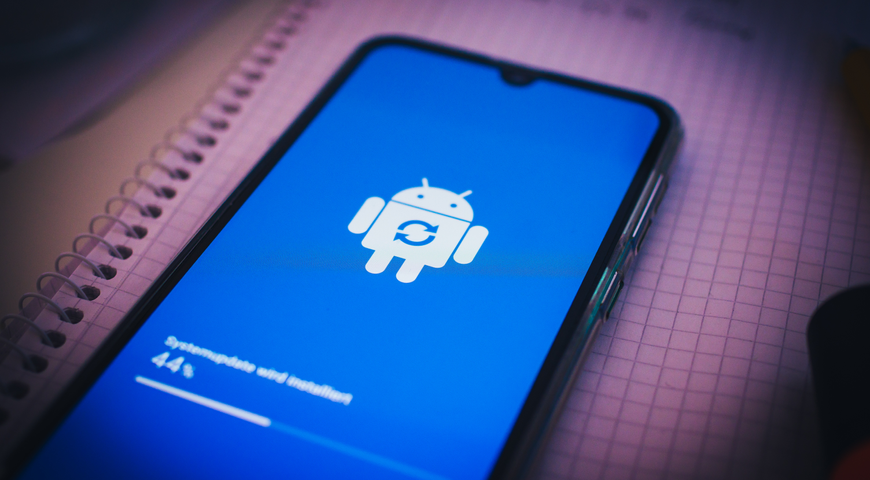
Artificial intelligence and machine learning are quickly changing how we experience the world. As the world's biggest soccer tournament amps up fans around the world, few are probably thinking about AI’s impact on the games – yet these cutting-edge technologies are also transforming how we play, watch, and predict sports.
Let’s take a look at how these technological innovations are helping to reshape the world of international soccer, and where else they’re acting as game changers.
Data Extraction: Changing How the Game is Played
In May, FIFA announced that each team in the tournament could bring two computer tablets to the games – one for the on-field coaching staff and one for the team analysts in the stands. These tools offer all players and coaches a new opportunity to collect data, assess decisions, and react to interactions on the field.
That kind of data extraction allows teams to analyze complex data from the players and matches. Usually, soccer teams gather the information from video and previously-played games so that they can create training programs designed to avoid injury, improve recovery times, or focus on player weaknesses.
This rule change regarding on-field tablets represents the first time soccer teams will have access to real-time information and analytics.
The use of in-game communications might be a literal game-changer. The extraction process retrieves the relevant data and then it then organizes it. Once organized, the coaches can analyze the data to identify trends and make predictions about the opposing team's next plays. All of this allows the bench to make better decisions on which players should sub in or how to defend.
Germany team manager Oliver Bierhoff said he welcomes the integrations because, "[t]here are many more options available such as artificial intelligence and machine learning, things that are not necessarily well heard within football but will be part of the future." Bierhoff also feels that using data analytics and exchange can help smaller teams make better on-field decisions.
By enabling teams to analyze a game in real time, the ability to share, process and analyze data will become even more influential in how games are decided.
Deep Learning: Changing How the Game is Viewed
Artificial intelligence doesn't stop at data extraction. Deep learning systems are algorithms that mimic the human brain's decision-making processes. Unlike the smaller data sets used by in-game data extraction, deep learning systems rely on substantial amounts of information called Big Data. That information is drawn from a variety of sources, enriching both the depth and breadth of data being analyzed.
By using deep learning systems, researchers from the University of Washington, Facebook, and Google created a system that can take a YouTube soccer video and display it in three dimensions using Augmented Reality (AR) devices or 3D viewers. One of the researchers' primary problems was finding a large enough training dataset focused on soccer. They needed a way to take a flat two-dimensional image and see enough viewpoints to make it three dimensions. That required a large number of pictures of each player, as well as a variety of training data that showed the players in different poses and clothing.
To solve their problem, they turned to the Electronic Arts FIFA games. Since these games are updated annually, the large amount of information in each game multiplies by the number of editions available. To collect the needed images, the researchers used a technique called “system call interruption”. As gamers maneuver their player during the soccer match, the program "talks" to the operating system. The researchers interrupted this conversation and extracted individual image data.
By removing the fields and backgrounds from the images, they isolated the human form. Then, they cropped the images to focus on the body positions which they fed into a neural network – a type of deep learning system. Neural networks focus on recognizing patterns in images rather than just numbers and letters. In the case of the soccer game, the deep learning system aggregated and sorted the data to overlay positions and create the depth needed for 3D displays.
Although not ready for live games yet, the deep learning might be changing the way we watch sports by 2022.
Artificial Intelligence: Changing How the Game is Predicted
Fans worldwide sit on the edges of their seats, urging their favorite team forward to a win. Within the 32 team lineup, traditional predictions seem to indicate that Brazil or Germany will reign victorious. However, two artificial intelligence machine companies aggregated the information differently, and the winner they predict may surprise you.
First, Unanimous AI Swarm platform created a group of 30 experts to make independent predictions across the tournament's field. The experts predicted the outcome of each game across the tournament. The company extracted the data and fed it into its algorithm. Unsurprisingly, the data predicted the current soccer juggernaut Germany to repeat its 2014 victory.
However, 30 experts don't represent the most data possible. Reliable machine learning requires a much larger data set. This can be seen in the predictions coming from the Technical University of Dormund in Germany.
The German researchers collected 16 different categories of information that can impact a team's success to create a deeper data set. The researchers looked beyond individual team strength in a given match since one bad day can change the outcome of an entire tournament.
Instead, the researchers look at factors such as the teams' structure, their countries' wealth, the teams' rankings, the teams' ability to claim home field advantage, and the coaches' experience. The researchers aggregated that data and processed it using an artificial intelligence learning method called "random forests." By predicting the number of goals each team is likely to score in each game, this approach allowed the researchers to simulate real results.
Using predictive technology, the German researchers simulated the whole tournament 100,000 times applying probabilities for each team making it to the final stage. The predicted winner? One of the current underdogs for the finals, Spain.
Acronis Active Protection: Changing the Game with Cyber Protection
Artificial intelligence is changing the game, both on the field and in the cloud. It’s often said that the best defense is a good offense, which is truer in data protection than anywhere else. At Acronis, we’re applying cutting-edge technologies to help protect your information.
Acronis Active Protection is the backup industry’s first AI-based technology that’s built into a solution to actively detect and defeat ransomware attacks. Running a tremendous data set through our AI cloud, Acronis creates machine learning models by analyzing countless computer processes that show how safe activities behave and what suspicious ones look like. Those ML models enable Acronis Active Protection to monitor your system in real time to recognize the potentially malicious activities that can signal an attack.
Traditional anti-virus software relies on recognizing signatures of computer code that signal malware. If it’s a new strain of malware that hasn’t been seen, that software is not effective. Instead, our use of machine learning models allows Acronis Active Protection to recognize bad behavior, which makes it much more effective – even identifying ransomware variants that have never been seen before.
Final Thought
Whether it is being used in international soccer or data protection, artificial intelligence is proving itself to be a real game changer. The difference is, unlike soccer fans, those concerned with cyber protection don’t need to wait until the end of the 2018 tournament to see how AI helps the winners.
About Acronis
A Swiss company founded in Singapore in 2003, Acronis has 15 offices worldwide and employees in 50+ countries. Acronis Cyber Protect Cloud is available in 26 languages in 150 countries and is used by over 20.000 service providers to protect over 750,000 businesses.




